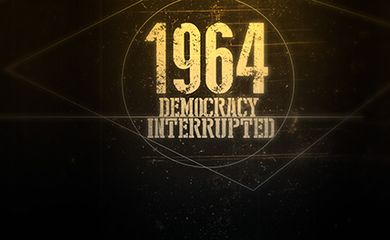Brazil needs plan for fighting violence


The creation of a national plan aimed at lowering the number of homicides is among the proposals of a document entitled Priority Agenda for Public Security, drawn up by NGOs and security experts from several states.

The escalating levels violence has taken in Brazil, and the feeling of vulnerability shared by the population pose a wide range of public security challenges, not least among them is the reduction of homicides. According to the Ministry of Health, the number of people killed in 2012 reaches 56.3 thousand. More than half of the victims of murder in the country (53%) are between the ages of 15 and 29.
“We need a national policy aimed at fighting violence. There’s a different policy in each state. Violence has become a national problem. Formerly, the areas [affected] were only a few metropolitan regions, like Rio, São Paulo and Recife. At the turn of the century, however, violence reached the countryside and other regions,” says sociologist Julio Jacobo Waiselfisz, the organizer of the Violence Map, published on a yearly basis with information on violent crime throughout Brazil.
Cutting down the number of homicides
The creation of a national plan aimed at lowering the number of homicides is among the proposals of a document entitled Priority Agenda for Public Security, drawn up by NGOs and security experts from several states.
“We have considerable difficulty clarifying these crimes. On average, a mere eight percent of murders are clarified. We need this plan to foster the investigation of homicides and make it a top priority in the states by [founding] departments that would specialize in this kind of crime, and also the development of forensics,” argued Carolina Ricardo, an analyst from the NGO Sou da Paz Institute (“I want peace”, in a free translation from the Portuguese).
In her view, one of the first steps for achieving this reduction is to set forth the duties of each federal agency in a clearer way. “It’s still very diffuse. All we know is that the states wield control over the Civil and the Military Police. But it’s necessary to define what falls under the responsibility of the federal government, to formulate a good national plan, establish having leaders and officers properly trained as a federal responsibility, and disseminate solid, standardized information. Implementing a security policy is impossible if there’s no information,” said Carolina Ricardo.
The specialist calls for the creation of a countrywide database, with information on both the weapons in circulation and the crimes committed throughout Brazil. It would serve to connect all justice and security agencies. She further maintains that there new regulations should be capable of controlling the traffic of weapons and reforming the National Public Security Fund so that investments are more wisely managed and straightforward goals more appropriately pursued.

According to the latest figures made available by the Ministry of Justice, in 2012, there were 548 thousand inmates in detention facilities all across the country.
Another issue highlighted in the Priority Agenda is the police model adopted in Brazil, in which there are two bodies of state police: the civil police, responsible for conducting investigations and exercizing court warrants; and the military police, in charge of general policing.
Alternative penalties
The country’s prison system is another challenge Brazil’s next head of state will have to tackle. According to the latest figures made available by the Ministry of Justice, in 2012, there were 548 thousand inmates in detention facilities all across the country. In addition to the high number of detainees, several prison centers face major problems, such as overcrowding, precarious infrastructure and the lack of policies aimed at integrating prisoners into society after their release. These issues often result in massacres and prison riots, with countless victims being killed or wounded.
In the opinion of Carolina Ricardo, a possible answer lies in alternative penalties, which would be the first and not last resort in cases of small offensive potential.
“The federal government is an important source of funds for prison policies. Most Brazilian state rely on these resources. The [next] president must say that [he/she] will not tolerate that Brazil should bring to jail such a large number of people with no actual results for society. When we take a look at the National Penitentiary Fund’s budget for 2013, 95% were spent on new spaces [in detention facilities]. Only 5% was earmarked for alternatives to imprisonment. We need to change our focus,” she said.

Leap Brasil members advocate the legalization of drugs and other measures, like a change in legislation that would make the difference between traffickers and users clearer.
Legalizing drugs
For retired judge Maria Lucia Karam, from Leap Brasil, an association of police officers, prosecutors and judges who advocate the legalization of drugs, a significant part of inmates were charged with crimes connected with illicit drugs. Furthermore, a large number of murders are related to drugs. Karam believes it is fundamental for the next head of state to effect a change in anti-drugs legislation in the country. “All measures for fighting violence are palliatives without this.”
Karam argues for the legalization of drugs and other actions, like a change in the law that would make it easier to ascertain who should be called a drug user (and therefore could not be arrested) and who is a trafficker (therefore, liable to be taken under custody). It should also reduce the amount of petty traffickers in jail and attract investments in prevention policies.
According to the Federal Constitution, public security is a common responsibility. The Union is responsible for the Federal Police, the Federal Highway Police, and the Federal Railroad Police, while states are in charge of the Civil and the Military Police, and also the Fire Department. City Councils can also create their own local policing bodies.
Translated by Fabrício Ferreira
Fonte: Brazil needs plan for fighting violence




